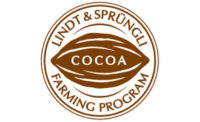The Ghana-based Cocoa Abrabopa Association (CAA) last week endorsed a partnership strategy with three supply chain companies that aims to boost socio-economic development and bolster sustainable cocoa production and sales.
The decade-old CAA, which supports nearly 13,000 producers farming 85,000 acres, confirmed its partnership with Kumankoma Company Limited (KCL), Commodity Warehouse Limited (CWL) and ASCOT Amsterdam through the “Cocoa for a Better Life” strategy before its annual meeting on Oct. 27.
(KCL), Commodity Warehouse Limited (CWL) and ASCOT Amsterdam through the “Cocoa for a Better Life” strategy before its annual meeting on Oct. 27.
 (KCL), Commodity Warehouse Limited (CWL) and ASCOT Amsterdam through the “Cocoa for a Better Life” strategy before its annual meeting on Oct. 27.
(KCL), Commodity Warehouse Limited (CWL) and ASCOT Amsterdam through the “Cocoa for a Better Life” strategy before its annual meeting on Oct. 27.With help from its partners, the CAA has developed a high-quality supply chain for traceable and certified cocoa beans, linking the association’s members to the international chocolate industry. More than 200 employees of the CAA and its partners are involved in supply chain management and development, with most directly involved in extension work at the farm level.
“We have aligned and reinforced our collaboration and structures to be ready for the future,” says Eliseus Opoku-Boamah, CAA executive secretary. “I am delighted to see this high degree of commitment toward our membership. With this partnership (we) will be in the position to realize more impact with regard to the productivity, income and the communities of our members. Together we will make the final step on identity-preserved traceability and further professionalization of our association.”
KCL, one of the top 10 Independent Licensed Buying Companies, has more than 50 cocoa buying stations in Ghana. Use of a computerized buying system ensures traceability, and an electronic banking system helps reduce risk.
“We need to support the farm management and livelihood of CAA members by providing them with fair and transparent procurement of their quality beans, which we are happy to do,” says Tim Miles, KCL managing director.
A new, state-of-the-art CWL warehouse, operated as a take-over center by the Cocoa Marketing Co. in southeastern Ghana, helps maintain identity-preserved, traceable supply from CAA farmers to the international markets. The warehouse is also designed to support maximum residue limit testing in the future.
ASCOT, meanwhile, serves as the dedicated sales office for Ghanaian and Liberian associations participating in the “Cocoa for a Better Life” program. It also provides chain development and commercial services.
“Only this reliable and transparent partner structure in Ghana will bring sound results and good perspectives,” says Merijn Bruinse, ASCOT managing director. “(It’s) good for the members of CAA, good for the international chocolate makers. A giant leap toward further co-investments in impact, for cocoa for a better life.”
Over the next decade, CAA hopes to increase membership to 20,000 farmers and boost annual cocoa production from 43,000 to 70,000 metric tons. It also hopes to secure a Fair Trade certification, in addition to UTZ and Rainforest Alliance certifications.





